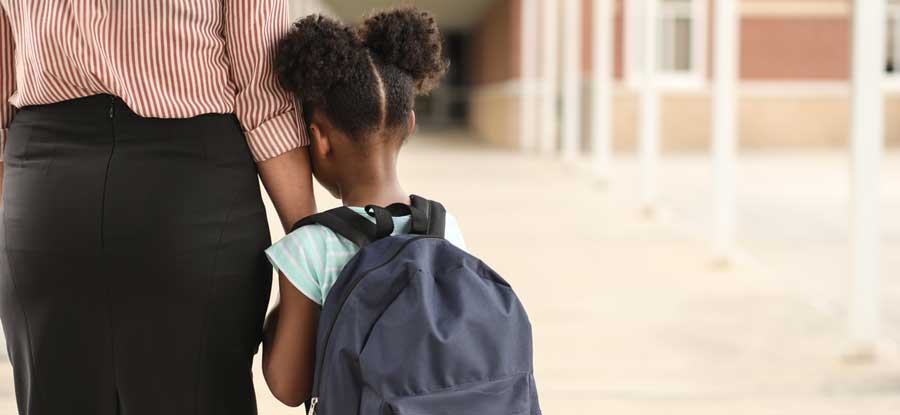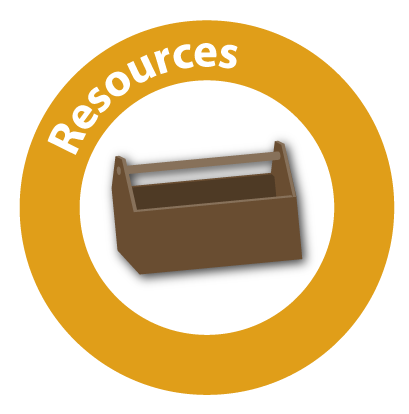|
| | Resources and Frequently Asked QuestionsFind resources to help your family or get answers to frequently asked questions. Resources
OrganizationsNational Alliance on Mental Illness (NAMI)NAMI is a national organization with chapters in both Cuyahoga and Lorain Counties. It offers educational programs and support groups for families. Anxiety and Depression Association of America (ADAA)ADAA is a national organization that offers resources and information for people with depression and anxiety disorders (learn more about resources for children and teens) Frequently Asked QuestionsClick the questions below to see answers to frequently asked questions ▸ How do I know if my child is struggling with anxiety?Some level of anxiety is good for us. It helps us to energize and prepare for big tasks and keeps us safe in dangerous situations. But when anxiety starts to get in the way of enjoying daily activities, that can be a problem. To learn about the differences between healthy anxiety and symptoms of an anxiety disorder, check out the podcast, “When is The Worry Too Much” in the Connecting for Kids podcast library. ▸ Who can diagnose anxiety?While some medical professionals may diagnose anxiety, most diagnoses are made by licensed mental health professionals. These may include counselors, social workers, psychologists and psychiatrists. For more information on the different types of mental health professionals who work with families, see our guide to choosing a mental health provider. For help finding a mental health provider near you, check out our local provider directory or request an Ask Us 1:1 session with a Connecting for Kids Family Resource Specialist. Finally, this guide can help families who want to prepare for a diagnosis appointment. ▸ How is anxiety treated?For many people with anxiety, treatment is a combination of therapy and medication. There are many different types of therapies available – and they work differently for different people. To learn more about therapies, visit our guide on treatment options or request an Ask Us 1:1 session with a Connecting for Kids Family Resource Specialist. Medication is typically managed by a psychiatrist, although some families work with their primary care providers or developmental pediatricians. While not everyone needs medication, some people report that medication helps them to be able to participate in therapy. Finally, anxiety often impacts the entire family. Other children in the family may feel like they're missing out because of their sibling's anxiety. Caregivers may also feel stressed by an anxious child's constant vigilance. Family therapy can help entire families to work together so that everyone's needs are met. For more information on the different types of mental health professionals who work with families, see our guide to choosing a mental health provider. ▸ How can I help my anxious child sleep better?Sleep disruptions are common for people with anxiety. Some experience nightmares or upsetting dreams. Others may find themselves unable to fall asleep with so many worries on their minds. Good sleep hygiene, which includes a relaxing bedtime routine, along with other healthy choices, is important for people with anxiety. To learn more about how you can help your anxious child to sleep better, listen to “Sleep Solutions” in the Connecting for Kids podcast library. ▸ How can I support my child with academic/test anxiety?Children spend a big part of their days in school, so when a child’s anxiety is related to school, it can be difficult on families. There are different types of academic anxiety, including reading anxiety, math anxiety and test anxiety. Families can learn about these and how to spot them with the Connecting for Kids podcast, “Academic Anxiety.” When a child struggles with academic anxiety, keeping open communication with the school is also important. Families can learn how to communicate better with their child’s school using this guide or this podcast. ▸ Can children with anxiety have an IEP or a 504 plan?Depending on individual needs, children with anxiety may qualify for either an IEP or 504 plan. When children qualify for an IEP, it is typically because they require counseling or other modifications/services that are delivered in school. Often, these children are identified with the Social Emotional Disturbance (SED) category. Some schools recognize anxiety as a neuro-behavioral diagnosis and may identify children under the Other Health Impairment (OHI) category instead. Worrywise Kids has more information on anxiety and IEPs. 504 plans may be used when a child has anxiety but does not require specialized services to participate in learning. A 504 plan includes accommodations that can help a child to learn alongside peers. Both Worrywise Kids and Understood offer examples of accommodations that may be helpful. ▸ My young child won’t separate for school/daycare. Should I be worried?Separation anxiety is a normal part of development that typically starts in infants between the ages of 6-12 months. At around age three, most children struggle less with separation anxiety and begin to separate more easily from their caregivers. This article, from HealthyChildren.org offers tips for families who are struggling with this type of separation anxiety. In some children, separation anxiety does not fade. Children with Separation Anxiety Disorder experience persistent fears about separating from a caregiver. They may also worry excessively about their caregivers being harmed or being taken away. For more information on Separation Anxiety Disorder, check out this article from Child Mind Institute. ▸ How do I know if my child has Obsessive Compulsive Disorder (OCD)?OCD symptoms include patterns of unwanted thoughts that cause anxiety (obsessions) or repeated behaviors used to interrupt anxious feelings (compulsions). People with OCD may be aware of obsessions or compulsions but feel powerless to stop them. The podcast, “Overcoming OCD,” gives families an introduction to this diagnosis. OCD is typically diagnosed by a licensed mental health provider. For help finding a mental health provider near you, check out our local provider directory or request an Ask Us 1:1 session with a Connecting for Kids Family Resource Specialist. |
Back to Anxiety Guide.

